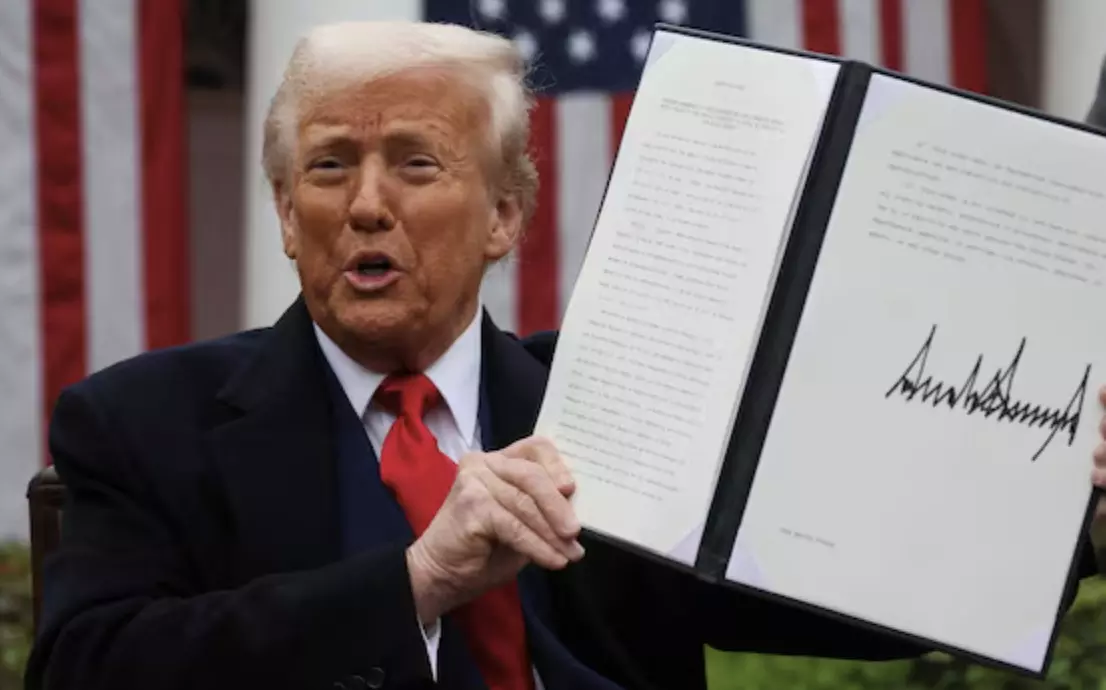Trump announces up to 50% tariffs on ‘Worst Offenders’; India hit with 27% tariffs
Trump announces up to 50% tariffs on ‘Worst Offenders’; India hit with 27% tariffs

US President Donald Trump has unveiled a new set of reciprocal tariffs, targeting major trade partners with import duties of up to 50%. India is among the countries affected, with a 27% tariff imposed on its goods. The new policy, set to take effect on April 9, has sparked criticism from world leaders.
Global Reactions Pour In
Several global leaders, including Canadian Prime Minister Mark Carney, Italian Prime Minister Giorgia Meloni, and Australian Prime Minister Anthony Albanese, have condemned the move. Japan’s Prime Minister Shigeru Ishiba warned that the tariffs would have a "great impact" on US-Japan relations, while the UK’s Prime Minister Keir Starmer acknowledged the economic consequences but urged a measured response.
China’s state media labeled the tariffs as "blackmail," with Beijing vowing countermeasures. Meanwhile, Germany’s Economy Minister Robert Habeck emphasized the need for a unified European response, stating that the EU must leverage its market strength to address the situation.
India’s Response
India’s Commerce Ministry is currently assessing the implications of the tariffs and consulting industry stakeholders. A government official described the situation as a "mixed bag," noting that while the tariffs pose challenges, there is room for negotiations with the US to reduce the impact.
Tariff Breakdown & Economic Impact
Trump’s executive order, titled "Regulating Imports with a Reciprocal Tariff to Rectify Trade Practices that Contribute to Large and Persistent Annual US Trade Deficits," aims to counter what the administration considers unfair trade practices. It imposes a 10% universal tariff on all imports to the US starting April 5, with additional tariffs kicking in on April 10.
The automotive sector has been hit particularly hard, with a 25% tariff covering over $460 billion in vehicle and parts imports. German auto manufacturers have warned that the move could cost jobs and disrupt global trade.
What’s Next?
Southeast Asian countries, facing tariffs as high as 49%, are planning diplomatic talks with Washington. Meanwhile, Trump’s economic advisors have acknowledged "short-term bumps" but insist the tariffs will ultimately benefit the US.
As the global trade landscape shifts, businesses and governments worldwide are bracing for potential retaliatory measures and economic ripple effects.

